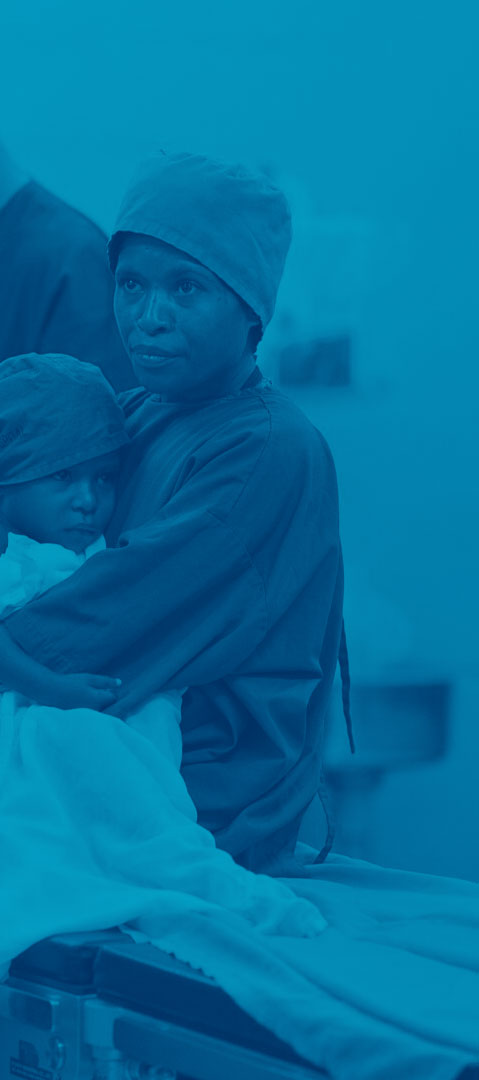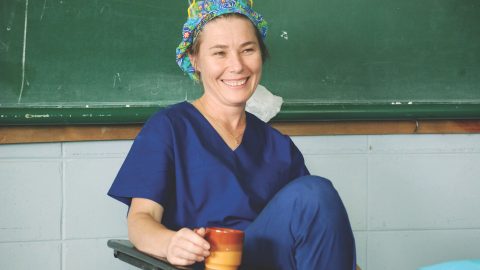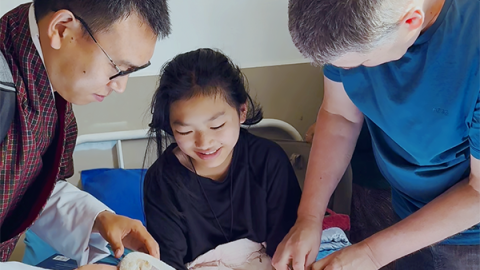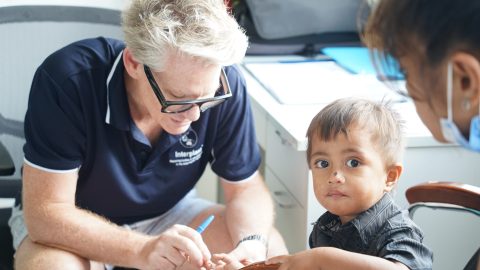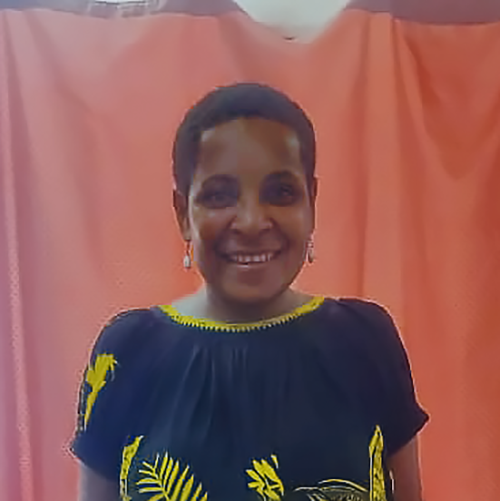
When Christina couldn’t access care in her hometown of Madang, she made the long journey to Port Moresby, 500 kilometres away.
In November, the Interplast volunteer team visited Port Moresby (POM) General Hospital in Papua New Guinea. There, they worked alongside local personnel to deliver a busy plastic and reconstructive surgical program. This trip followed on from an earlier visit in June. Previous patients were invited back, and new patients had the chance to access care.
The team meet Christina
One of these new patients was Christina, a mother who presented with severe lymphedema on her right leg. Lymph fluid had accumulated under her skin, causing her leg to swell significantly.
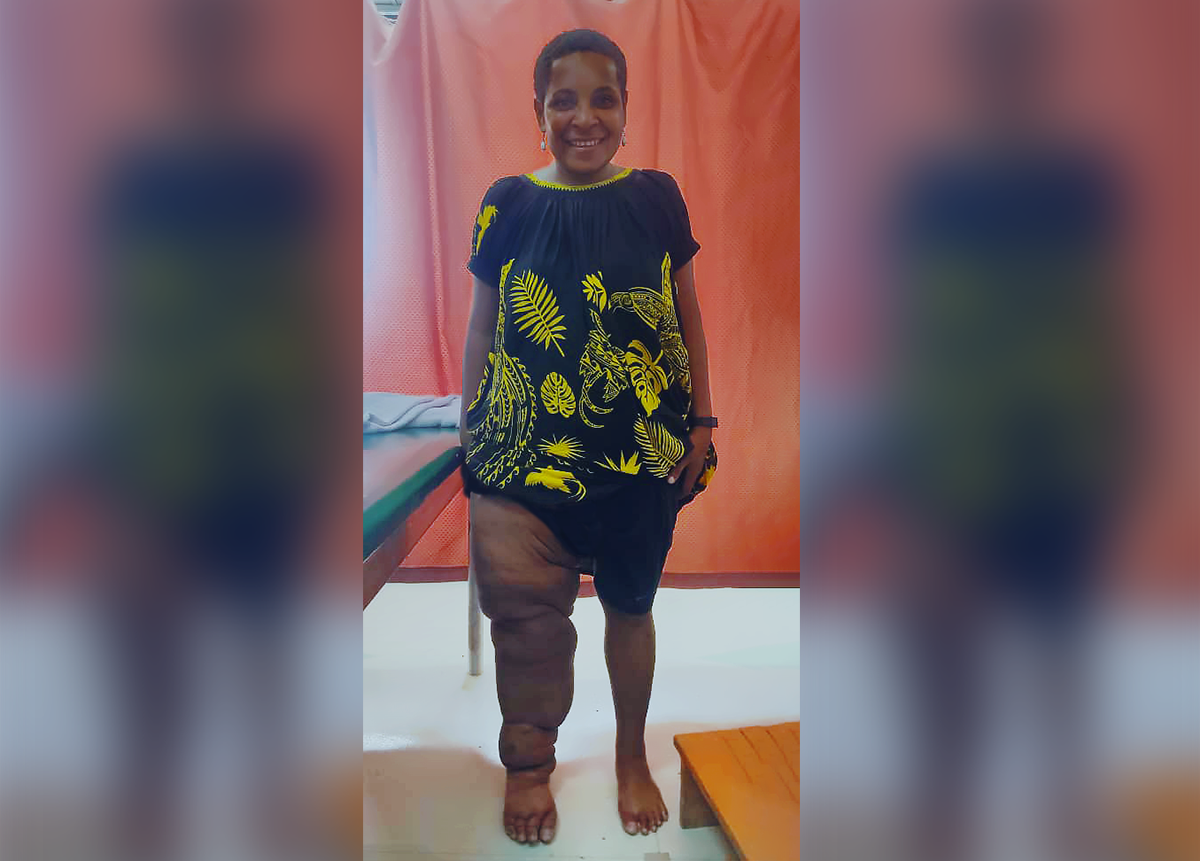
Christina during her consultation.
Unfortunately, she had been unable to access pressure garments that would help manage lymphedema by limiting the fluid build-up and move it to areas that were draining well. Eventually, the swelling grew severe enough that it limited Christina’s mobility and made it difficult for her to work and care for her young daughter.
More than surgery
Interplast Surgeon, Dr Siddharth Karanth, nominated Christina for surgery to debulk her right leg, which would instantly relieve some of the swelling. Together with local surgeon, Dr Mitchell Masin, they were able to remove 14kg of excess fluid and tissue from Christina’s leg.
Following her successful surgery, Christina was provided with an all-important pressure garment. Interplast Occupational Therapist, Helen Scott, worked with the physiotherapy residents and hospital seamstresses to produce a compression garment that would support her healing and prevent the fluid from accumulating again. The garment is fitted in three sections that can be adjusted as Christina’s leg changes size during her recovery.
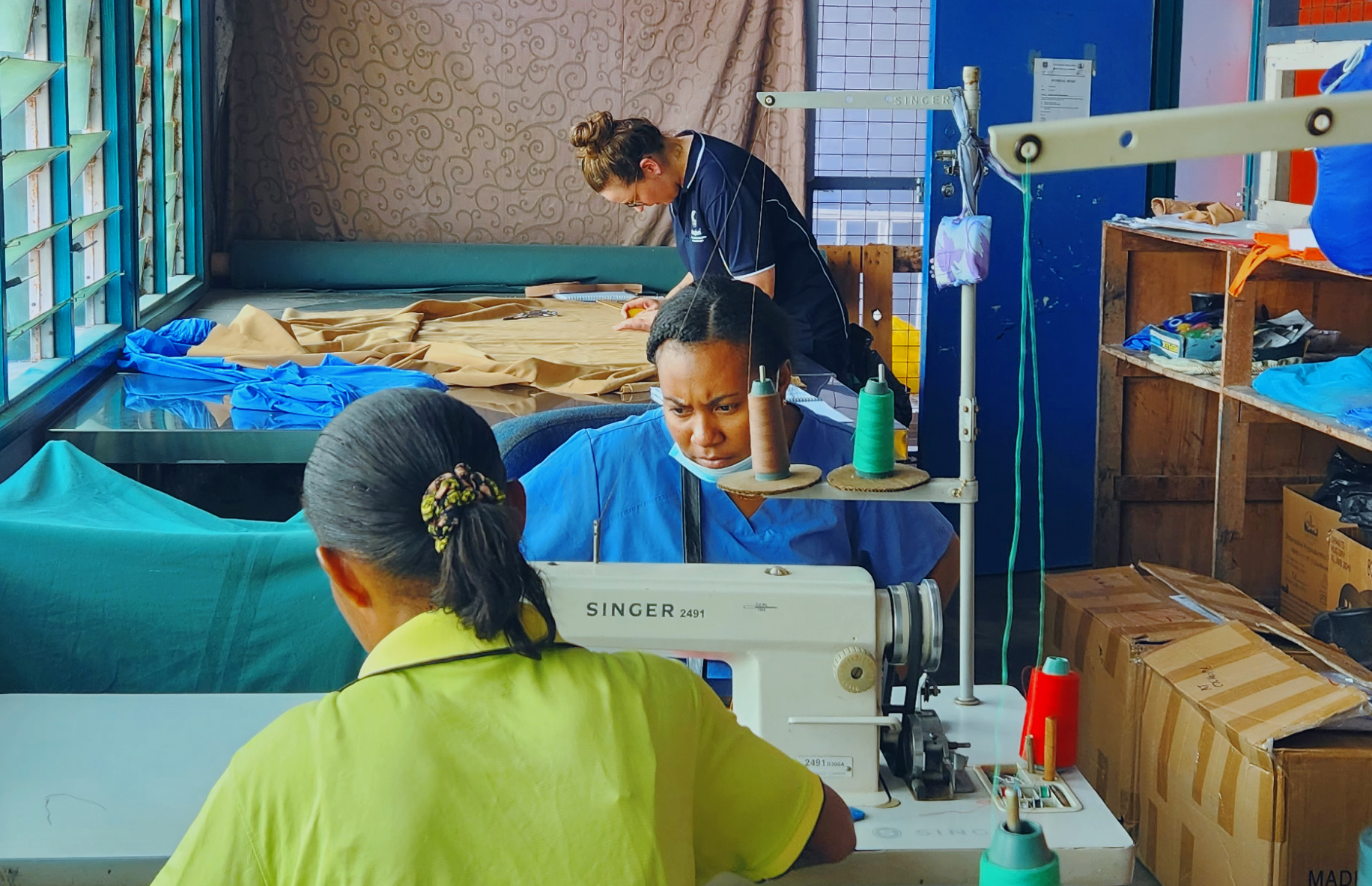
Helen and hospital staff work together to make compression garments for Christina and other patients.
“For Christina… the results will be life changing. She will be able to care more easily for her young daughter and her ability to participate in the workforce will be increased.” Helen Scott, Interplast Volunteer Occupational Therapist
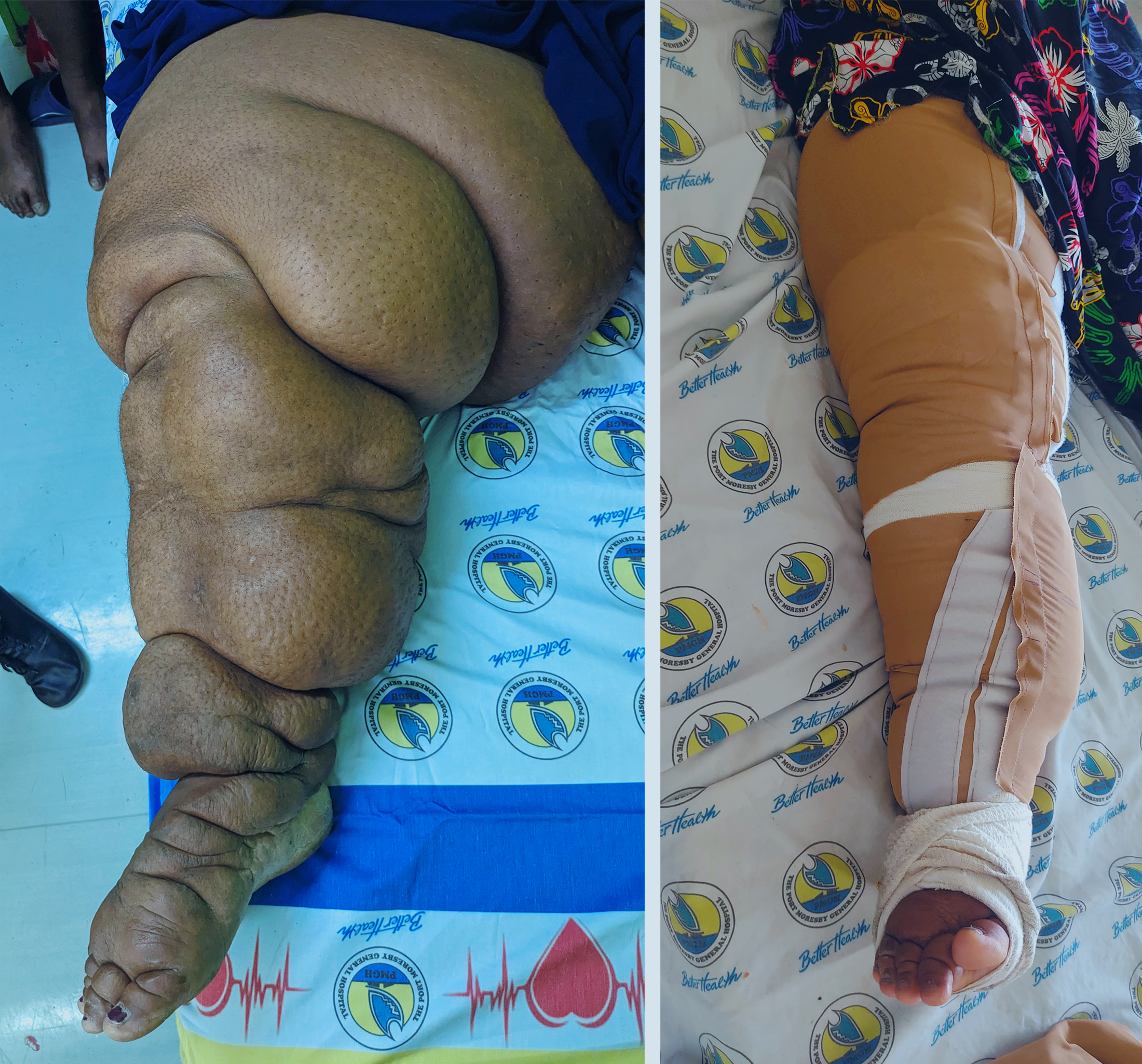
Before and after Christina’s surgery to relieve the fluid in her leg.
Christina was then able to spend time with the physiotherapy residents, learning how to take care of the pressure garment, perform self-lymphedema massages, and safely walk short distances. She also took the time to express her gratitude to Interplast and local staff for their care.
Strengthening a multi-disciplinary workforce
Throughout the program, Interplast volunteers were able to provide many opportunities for local staff to increase their knowledge and experience. 78 clinicians attended lectures across four separate sessions, which covered:
- Anaesthesia for paediatric burns
- Wound care skills for nurses
- Physiotherapy skills for burns patients.
Helen and Interplast Nurse, Heidi Woods-Lehnen, also led daily educational activities covering numerous topics relevant to allied health and nursing staff.
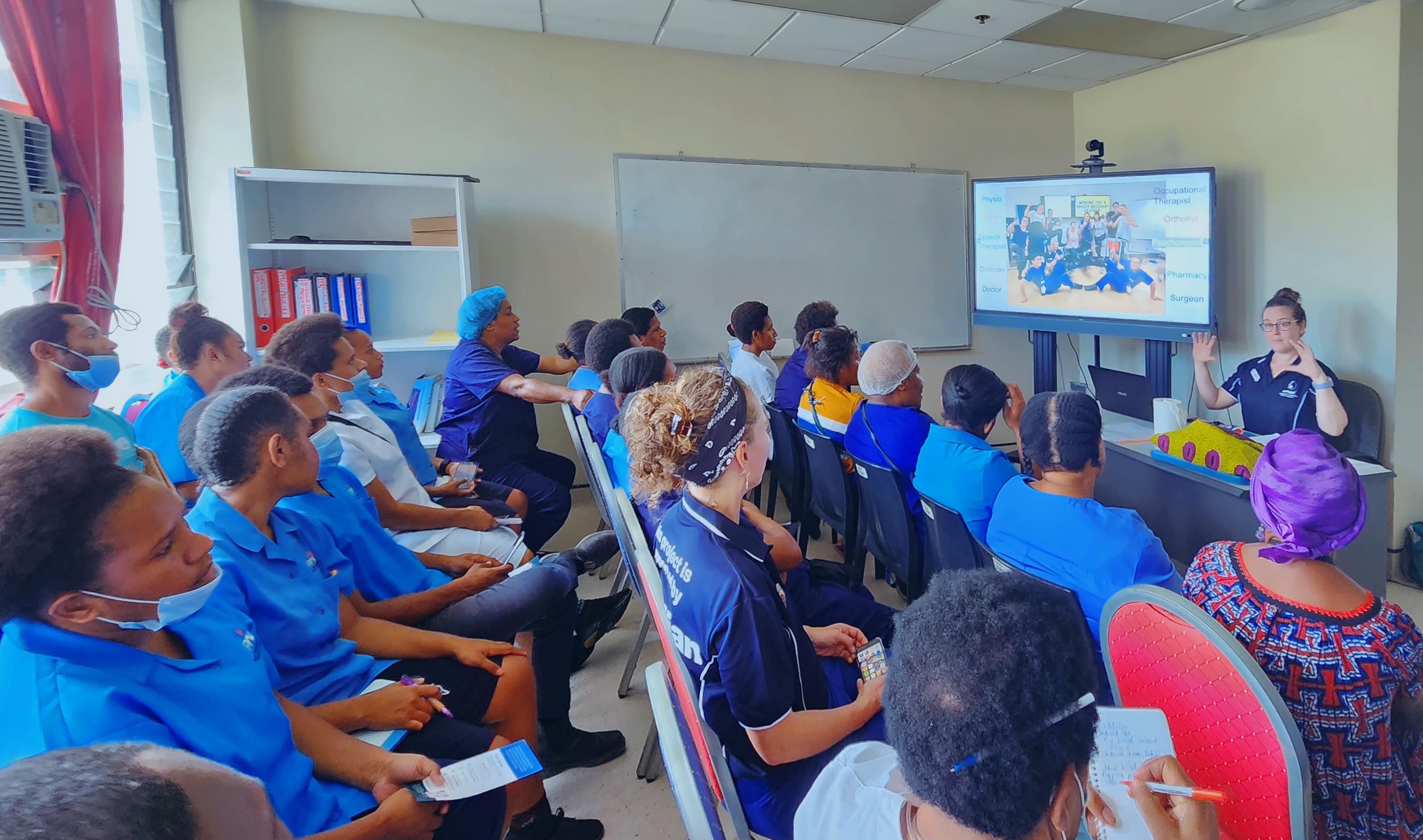
Helen giving a lecture to nurses and allied health staff.
The positive impact of the wound care training was seen immediately. Allied health residents were able to see direct benefit to patients who were immobile in bed, and nurses praised the efficiency of the new wound cleaning technique they were taught.
A successful return
In this trip alone, the Interplast team were able to support:
- Consultations for 42 patients
- 17 life-changing surgical procedures
- 29 allied health treatments
- Mentoring to 16 clinical personnel.
Interplast acknowledges the support of the Australian Government through the Australian NGO Cooperation Program (ANCP) for making this program possible.
We cannot run life-changing programs without support from the Australian and New Zealand general public. Your donation helps us expand our programs to reach more people, provide more services and train more staff. Every dollar counts.
